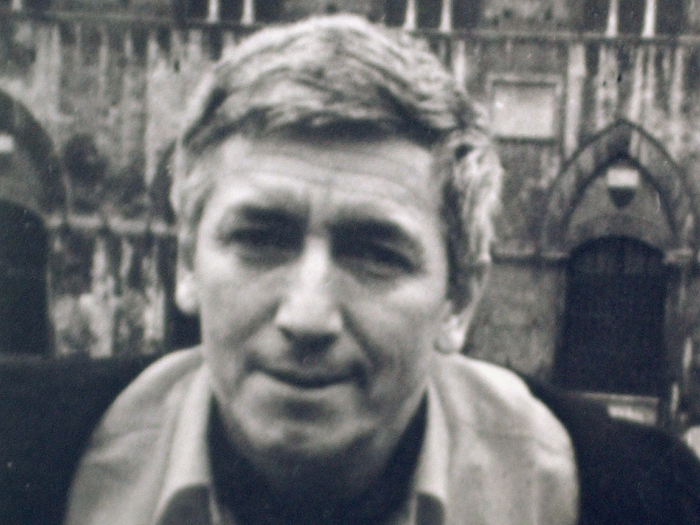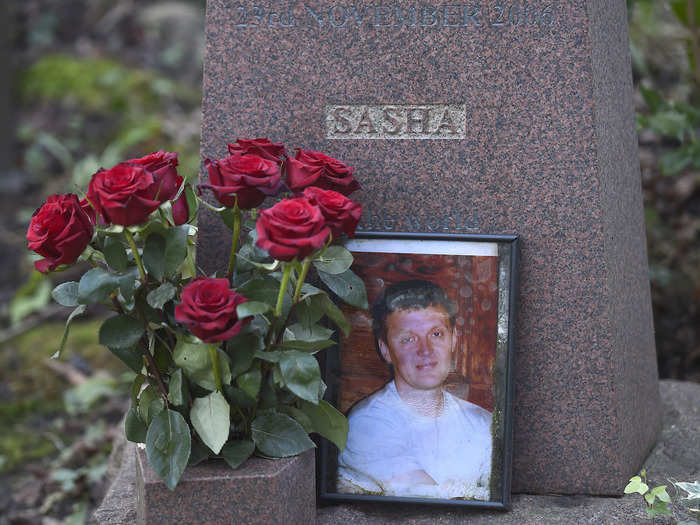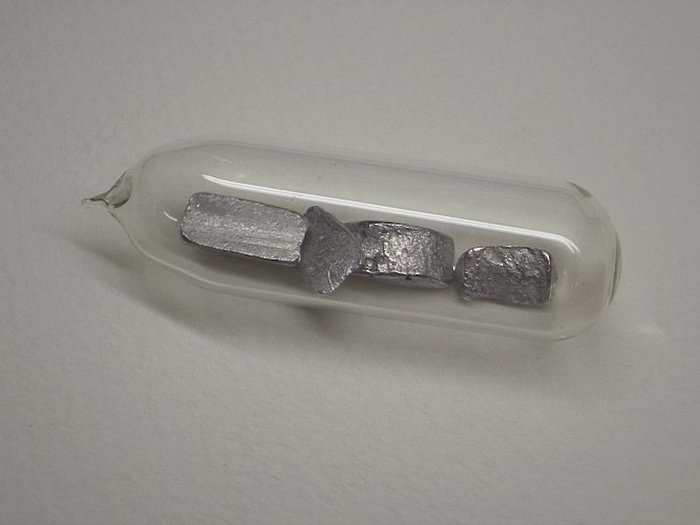- Home
- slideshows
- miscellaneous
- 7 crazy stories of Russia's enemies mysteriously getting poisoned - like when a Cold War dissident was hit with a poison-tipped umbrella
7 crazy stories of Russia's enemies mysteriously getting poisoned - like when a Cold War dissident was hit with a poison-tipped umbrella
A Russian colonel and his daughter hit with an unidentified substance.

A Bulgarian dissident stung with a poison-tipped umbrella.

During the Cold War, Georgi Markov, a Bulgarian dissident, was killed with a poison-tipped umbrella. Markov, a writer, journalist and opponent of Bulgaria’s then communist leadership, died on Sept. 11, 1978 after someone fired a ricin-laced pellet into his leg on London’s Waterloo Bridge.
According to accounts of the incident, Markov, who defected to the West in 1969, was waiting for a bus when he felt a sharp sting in his thigh. A stranger fumbled behind him with an umbrella he had dropped and mumbled “sorry” before walking away.
Markov later died of what is believed to be ricin poisoning, for which there is no antidote. Dissidents accused the Soviet KGB of being behind the killing.
An ex-KGB agent drunk green tea laced with polonium-210.

In 2016, ex-KGB agent Alexander Litvinenko, 43, died after drinking green tea laced with polonium-210, a rare and potent radioactive isotope, at London’s Millennium Hotel.
Putin probably approved the killing, a British inquiry concluded in 2016. The Kremlin has denied involvement.
An inquiry led by a senior British judge found that former KGB bodyguard Andrei Lugovoy and another Russian, Dmitry Kovtun, carried out the killing as part of an operation that he said was probably directed by Russia’s Federal Security Service (FSB), the main heir to the Soviet-era KGB.
An outspoken critic of Putin, Litvinenko fled Russia for Britain six years to the day before he was poisoned.
Later that year, Matthew Puncher, the British scientist who later found traces of polonium-210 all over London, was later found stabbed to death, according to BuzzFeed News.
A Russian businessman may have ingested gelsemium plant.

Alexander Perepilichny, a 44-year-old Russian, was found dead near his luxury home on an exclusive gated estate outside London after he had been out jogging in November 2012.
Perepilichny had sought refuge in Britain in 2009 after helping a Swiss investigation into a Russian money-laundering scheme. His sudden death raised suggestions that he might have been murdered.
British police ruled out foul play despite suspicions he might have been murdered with a rare poison. An inquest into his death has yet to give a definitive conclusion as to how he died.
A pre-inquest hearing heard that traces of a rare and deadly poison from the gelsemium plant had been found in his stomach.
Perepilichny had enjoyed a large bowl of soup containing sorrel, a popular Russian dish. Russia denied involvement.
A Ukrainian opposition leader poisoned with dioxin.

Viktor Yushchenko, then a Ukrainian opposition leader, was poisoned during the campaign for the 2004 presidential election in which he stood on a pro-western ticket against the current Prime Minister Viktor Yanukovich.
He was poisoned with 1,000 times more dioxin than is normally present in the human body in 2004. His face and body were disfigured by the poisoning and he had to have dozens of operations.
Yushchenko subsequently won the presidency in a re-run poll after Ukraine’s Supreme Court, amid street protests dubbed the “Orange Revolution,” struck down the results of a first vote that gave victory to a pro-Moscow candidate.
He said he was poisoned while having dinner outside Kiev with officials from the Ukrainian security services. Russia denied any involvement.
A Russian ambassador showed symptoms of thallium poisoning.

In 2006, Russia's ambassador to the UN's International Maritime Organization, Igor Ponomarev, collapsed and died after having complained of severe thirst and drinking three liters of water, according to BuzzFeed News. Severe thirst is a known symptom of thallium poisoning.
Ponomarev was set to meet with Mario Scaramella, who was investigating connections between the FSB and Italian politicians.
Ponomarev also died two days before Litvinenko, who likewise died after meeting with Scaramella.
Other heavy metals have also been used.

Vladimir Kara-Murza, a Russian opposition activist, says he believes attempts were made to poison him in 2015 and 2017.
A German laboratory later found elevated levels of mercury, copper, manganese and zinc in him, according to medical reports seen by Reuters. Moscow denied involvement.
Popular Right Now
Popular Keywords
Advertisement